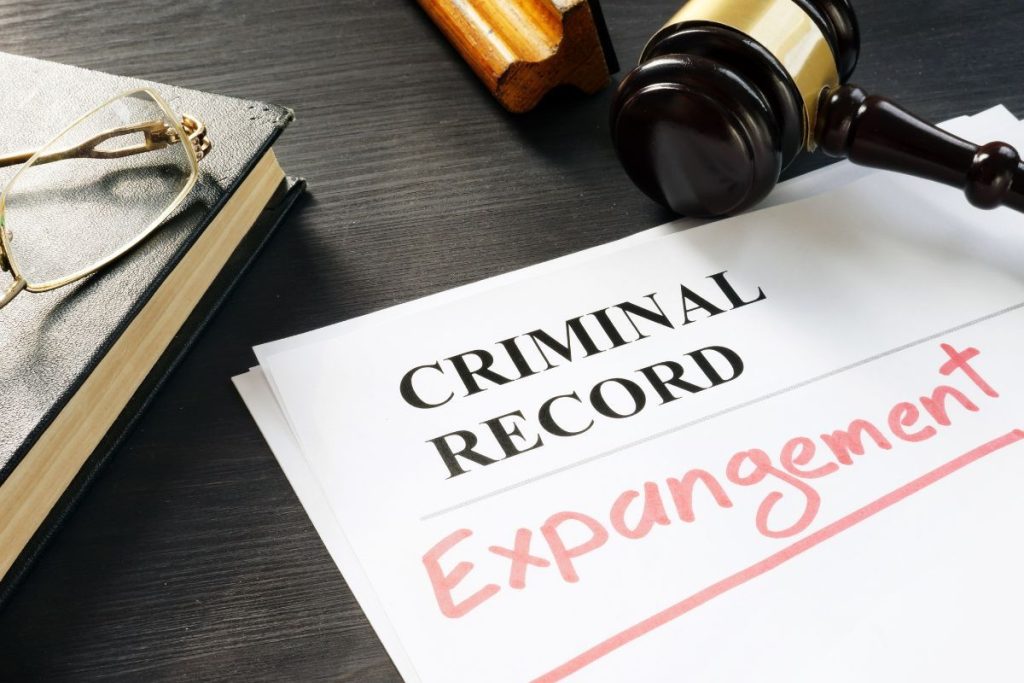
Having a criminal record can make life extremely difficult. Even a minor offense can show up on a background check and prevent you from getting a job, renting an apartment, or pursuing other opportunities. That’s why many people look into expunging or sealing their criminal record.
What is Expungement?
An expungement is a court-ordered process that essentially seals your criminal record from public view. However, an expunged record is not destroyed – it still exists in the court system and law enforcement databases. This means that your expunged record can still surface in certain situations.
While expungement can be beneficial, it’s important to understand its limits. An expunged record does not simply vanish as if it never existed. There are still situations where your sealed criminal record can resurface and be used against you.
When Do You Have to Disclose an Expunged Record?
While an expungement seals your criminal record from public view, there are certain situations where you may still need to disclose an expunged offense. This includes:
Employment Applications
Many employment applications include questions about whether you have ever been convicted of a crime. You can legally answer “no” to this question if your record has been expunged, with a few exceptions:
- Government jobs – You may need to disclose expunged records when applying for government positions, such as jobs related to law enforcement and criminal justice.
- Jobs related to guns and ammunition – You will need to disclose expunged convictions related to the manufacture, transport, repair, sale, and possession of firearms.
- Security-sensitive jobs – You may need to disclose your expunged record when applying for security-sensitive positions related to national security, airport security, and port and border control.
- Working with vulnerable populations – Jobs involving children, patients, and the elderly often require disclosing expunged records related to sexual offenses, theft, fraud, or violence through background checks.
- If the employer specifically asks you to disclose expunged offenses. Very few private employers have this requirement.
Outside of these exceptions, you can legally answer “no” if asked about prior convictions on a job application.
Licensing and Certification Applications
Certain occupational licenses and certifications may require you to disclose expunged criminal records, including:
- Teaching certificates
- Nursing and healthcare licenses
- Accounting licenses
- Engineering licenses
- Real estate licenses
- Security industry licenses
Carefully review the licensing application to see if you need to disclose sealed records. Failing to disclose an expunged offense when required can put your license at risk.
Gun Applications
You must disclose sealed convictions when applying for a license to carry. The state reviews all criminal records, including expunged ones, when determining your eligibility.
You’ll also need to disclose expunged offenses when purchasing a gun from a licensed firearm dealer. The dealer is required to run a background check, which will uncover your sealed record.
Housing Applications
Landlords and property managers typically run background checks on applicants to look for past rental evictions and criminal records. In most cases, your expunged record should not appear on these basic checks.
However, some landlords may use an FBI background check, which could potentially reveal sealed offenses. Be prepared to explain your situation if a sealed record incorrectly surfaces during a rental application.
In the Courtroom
Sealed records can still be used against you in ongoing or future court cases. Prosecutors may access your expunged record and use it as evidence if you are involved in:
- A new criminal case
- A driver’s license suspension or revocation hearing
- A family law or child custody case
- A civil lawsuit related to negligence, malpractice, or liability
The judge also has the discretion to unseal an expunged record if it’s relevant to the current case.
When Applying for Federal Jobs, Benefits, Loans
Federal agencies and departments can access your sealed criminal record when determining your eligibility for certain jobs, benefits, services, and loans.
For example, expunged convictions may be considered when applying for:
- Federal employment
- Security clearances
- Federal student financial aid
- Federal housing assistance
- Small Business Administration loans
So you may need to disclose a sealed record when completing federal applications. Each agency has specific disclosure guidelines to review.
What is the Penalty for Not Disclosing an Expunged Record?
If you are legally obligated to disclose your expunged record but fail to do so, there can be serious consequences:
- Loss of a professional license or certification
- Denial of a loan or government benefit
- Termination from a job
- Eviction from rental housing
- Prosecution for falsifying an official document
- Perjury charges for lying under oath
Checking with a criminal defense attorney can help avoid mistakes when answering questions about your criminal record. An attorney can review the specifics of your expungement order and the application questions to advise if disclosure is required.
What to Do If an Expunged Record Incorrectly Appears
While rare, your sealed record may mistakenly appear on some background checks. Here are steps to take if this happens:
- Get a copy of your expungement order – This court order proves your record is sealed.
- Contact the background check company – Inform them the record should not be included per your expungement order. Ask for a corrected report.
- Dispute errors with the court – For incorrect court and DMV records, file a petition to correct the mistake.
- Consult with an attorney – An attorney can intervene on your behalf if an expunged offense continues to surface incorrectly. They may be able to get inaccurate records permanently deleted.
When Can You Get a Record Expunged?
To get a record expunged, you must first meet the eligibility requirements, including:
- You cannot have been convicted of a felony in the past five years
- You cannot have been convicted of a misdemeanor in the past three years
- You cannot have a pending criminal case
- You must satisfy the waiting period after completing your sentence
The expungement process involves petitioning the court, appearing at a hearing, and receiving a judge’s approval. Our attorneys can determine if you qualify and handle the expungement petition process for you.
Work with an Expungement Lawyer
Navigating expungement laws can be complex when determining if and when you have to disclose your criminal record. Work with an experienced expungement lawyer for your best chances of clearing your record successfully.







